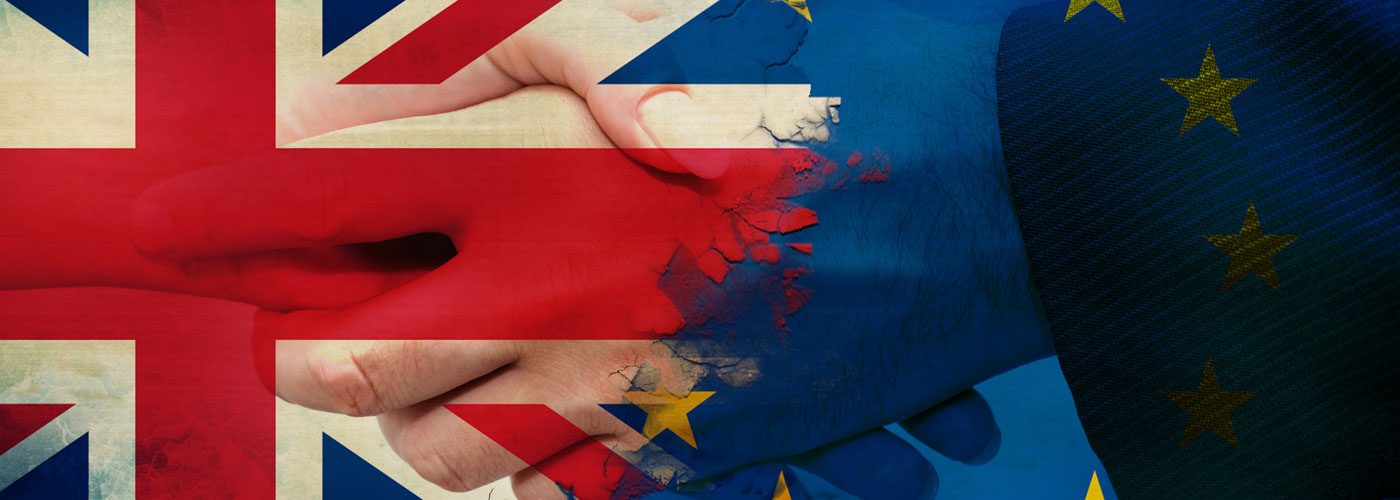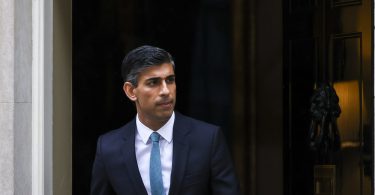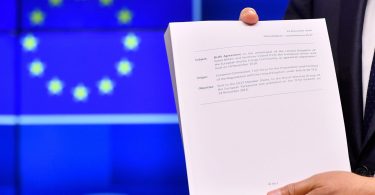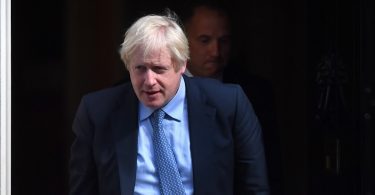- A new leader of the Conservative Party (“Superleader”) will not be able to escape by skill or strength of purpose from the fatal restrictions of this deal.
- The Political Declaration has legal effects because the WA requires the UK as well as the EU to negotiate an agreement in line with it. It will not be possible for the UK to insist on negotiating a future relationship deal which contradicts the PD.
- The PD is clearly incompatible with negotiating a Canada-style FTA with the EU. In the real world, it is only compatible with a customs union and the UK would be forced into one as part of the long term deal.
- Even Superleader would not be able to escape from the fatal undermining of the UK’s negotiating position once the deal becomes legally binding. We would be led into a false Brexit in which the benefits of leaving the EU would be sacrificed.
- Ideas of a future government just busting out of a binding international treaty are fantasies.
- The deal betrays Northern Ireland and the Union and those who now support it on “pragmatic” grounds risk being complicit in that betrayal. Why should anyone have confidence that a future Superleader will not concentrate very limited negotiating capital on extracting Great Britain from the backstop and leave Northern Ireland behind?
- Fear of the alternatives is a valid point, but the deal leads to a customs union anyway, so what is there to be lost? If resistance to the deal leads to a long Article 50 extension, that is still miles better for the UK than the deal.
- Those who resisted and defeated the deal for the third time were right in principle, but importantly they were also right pragmatically. If it is brought back again, it should be defeated again, in the national interest.
Introduction
The date has now passed when the UK should have left the EU, and – amazingly – I am writing yet another article about Mrs May’s “deal”. Last Friday, a solid core of Brexit-supporting Conservative MPs once again rejected the deal and brought about its defeat, in alliance with the DUP.
I believe that they were right to do so. Brexit supporters whose views I respect have persuaded themselves that for pragmatic reasons they should now support the hated deal. I do not doubt the sincerity of those who have come to this view, but I do not agree with them.
A common theme is: now that Mrs May has said she will stand down, a new Brexit-supporting Conservative leader can be installed who could recover much of the ground lost by Mrs May’s disastrously incompetent negotiations. This new leader – let us call him or her “Superleader” – would be able through strength of purpose and skill to negotiate the Canada-style Free Trade Agreement with the EU which is needed to allow the UK to conduct an independent global trade policy, and would also rescue Northern Ireland from the backstop.
The Political Declaration, and why it is important
Theresa May’s deal with the EU contains two parts. The legally binding treaty part consists of the Withdrawal Agreement itself and the Northern Ireland backstop Protocol which is attached to it. The other part is the Political Declaration, which sets out in broad terms the framework for the future relationship agreement between the UK and the EU.
It is widely believed that the Political Declaration is “not legally binding”, and therefore that it does not really matter what it says. But this widespread belief is wrong. It is correct that the Political Declaration is what its name suggests, and does not form part of the legally binding treaty text. But it is wrong to say that it does not have important legal effects.
The PD is linked to the binding treaty by Art.184 of the WA, which imposes an obligation on both the EU and the UK to use “best endeavours in good faith” to negotiate an agreement conforming to the PD.
The PD is vague in many areas, but where it is prescriptive, the EU will be legally entitled to insist on the UK seeking an agreement which complies with it. If the UK does press for something different, the EU will be fully entitled not to agree the future relationship agreement with us. The consequence will be that the UK will automatically enter the backstop Protocol and stay there indefinitely. This will legally prevent Superleader, however pro-Brexit and determined, from being able to negotiate an agreement which departs from the PD.
Why the Political Declaration rules out a Canada-style FTA
It is important to understand the difference between a customs union (which is what the EU is) and a free trade area. Both involve zero tariffs on goods passing between their members. But the biggest difference is that an FTA allows its members to set their own tariffs on trade with other countries who are not members of the FTA, while a Customs Union requires its members to operate identical tariffs on goods imported from non-members.
It is that feature of a customs union – its requirement for external tariffs to be aligned – which would completely kill the ability of the UK to operate an independent global trade policy. How can we hope for other countries to enter into agreements with us under which we get liberalised entry to their markets for our goods and services, but we say to them, “sorry, we have to keep charging EU-level tariffs on all your goods exports to us”?
But there is another difference between FTAs and Customs Unions. In order to allow FTA members to have the freedom to conduct their trade with third countries independently of each other, it is necessary to prevent goods imported from third countries from passing from one FTA member to the other without paying tariffs in order to avoid that other member’s higher tariffs on goods from third countries. So-called “rules of origin controls” therefore give the benefit of the zero tariff exemption only to goods which originate inside an FTA member, and not to third country goods imported into it.
Rules of origin controls are absolutely standard in FTAs. They are in the EU-Canada FTA, in every other FTA the EU has with non-member countries (including its FTAs with Norway and Switzerland) and I am not aware of any FTA in the world which does not have them. As I have said, they are the necessary consequence of each FTA member having autonomy in its trade policy with other countries outside the FTA.
So let us then turn to what is probably the most important single paragraph in the PD:-
B. Tariffs
23. The economic partnership should ensure no tariffs, fees, charges or quantitative restrictions across all sectors, with ambitious customs arrangements that, in line with the Parties’ objectives and principles above, build and improve on the single customs territory provided for in the Withdrawal Agreement which obviates the need for checks on rules of origin.”
“No tariffs, fees or charges” is fine, and that would be a standard part of a Canada-style FTA. The big problem in this paragraph is that the future relationship is to “build and improve on the single customs territory” in the WA. That is an out-and-out customs union and not an FTA. The clincher is the closing words about having no origin checks. Those words mean that the future relationship cannot be an FTA, or at least cannot be an FTA of a kind the world has ever seen before.
Despite these words, Theresa May has repeatedly claimed that the PD would allow the UK to operate an independent trade policy. That would only be possible if you believed in a fantastical, magical creature – a unicorn with three horns, known as the Chequers facilitated customs arrangement. Supposedly, this would allow the UK to operate an independent trade policy by charging either EU or UK level tariffs on goods entering the UK from non-EU countries, and then tracking goods across supply chains within the UK to make sure that goods which have not borne the correct EU tariffs do not migrate into the EU.
Leave aside all the obvious practical difficulties of developing public sector IT systems that would allow these elaborate processes to be conducted, the costs it would impose on businesses, and the problems it would cause with our negotiations on non-EU FTAs where their exporters would be faced with complex rebate systems in order to get zero tariff entry to the UK market.
The EU has not shown the slightest sign of enthusiasm for this idea and has certainly not accepted that it would allow the UK to operate such a system in place of an ordinary customs union. So the EU would tell Superleader that paragraph 23 of the PD can only be satisfied by a customs union. If Superleader insists on trying to negotiate an FTA, the EU would say the UK is breaching our good faith obligation to negotiate an agreement in line with the PD. So into the backstop we automatically go, where we will be locked into a full customs union without limit of time.
More fundamentally, if the pass is sold by legally agreeing to the WA with its attached PD, a future Superleader will be severely constrained on a number of fronts in what kind of future relationship can be negotiated with the EU. The UK’s key negotiating cards such as EU budget payments and giving tariff-free access for EU goods into the UK market will have been given away in advance. In the PD we agree in principle to share our fishing waters with the EU. And the threat that if we do not agree to the EU’s terms, the backstop will then kick in with terrible damage to the UK’s integrity will make it incredibly difficult even for Superleader to avoid being locked in to a relationship with the EU under which it is simply impossible to deliver the benefits of Brexit to the British people.
This is why, I’m afraid, the prospect of Superleader coming along and saving the day if the UK were to agree this deal, is based on wishful thinking rather than reality. This is my main reason for calmly but firmly disagreeing with those who now believe that the best way forward is to accept the deal with its faults and try to modify it later. They are gravely under-estimating the severe difficulty – indeed virtual impossibility – of the UK negotiating its way out of the constraints of this deal if it is allowed to become legally binding.
They are naive if they think the EU will be flexible. On Friday, Bundestag foreign affairs chairman and Merkel ally Norbert Röttgen warned Brexiteers that if they back the deal now, only to attempt to unpick it later, then they are on a hiding to nothing. If any Brexiteer ran in a leadership contest on a platform of changing the Withdrawal Agreement, he said, then on their first visit to Brussels “the realisation would be this is a done deal, full stop.”
Some fantasies
Regrettably, some people who are advocating that we should accept the deal seem to be basing their decisions not on reality but on fantasy.
One prominent blogger has said:
Don’t worry about the so-called ‘permanent’ commitments this historically abysmal Cabinet are trying to make on our behalf. They are not ‘permanent’ and a serious government – one not cowed by officials and their bullshit ‘legal advice’ with which they have herded ministers like sheep – will dispense with these commitments and any domestic law enforcing them.”
This simply fails to understand the consequences of the UK overtly and flagrantly breaching an international treaty of this kind. In 45 years of EU membership, no British government – not even Margaret Thatcher’s – has been willing to engage in an overt breach of the EU treaties. There are good reasons for that which are not based on “bullshit legal advice” from civil servants. The prospect that Superleader’s government is going to throw over the treaty and just breach it is in the realm of fantasy not reality.
The UK’s reputation for honouring our treaty obligations is critical for our international credibility, particularly in entering into new trade agreements. It would be gravely damaged by repudiating a lawful treaty, and why should new partners with whom we want to enter into new treaties trust us?
In addition, a treaty breach would give rise to retaliatory action by the EU which would be rendered lawful by a UK treaty breach. Title III of Part 8 of the WA empowers an arbitration panel to rule whether a party has breached the WA and, if so, what reparation is due. Unlike more limited international dispute settlement procedures seen in other treaties, it gives an arbitration panel on going oversight of its rulings, including the power to levy lump sums or penalty payments if the UK failed to comply with a ruling (Art.178(1)), and it would give the other party (the EU if the UK were to repudiate the WA or Protocol) the right to suspend the observance of its own obligations—that is to say, effectively to offset the injury by means of self help (Art.178(2)).
This means that retaliatory action could be taken against us, particularly against our trade with the EU, for which we would have no remedy under the framework of WTO rules. This contrasts with leaving without a deal – a perfectly permissible step under international law which – because it is lawful – leaves us protected against many forms of retaliatory action by the EU.
The difficulties of breaching the WA or Protocol at the international level are increased by Art.4 of the WA, which requires that the provisions of the WA (including the Protocol) and of EU law which are applied to the UK under the WA must be given “direct effect” and must have supremacy over conflicting UK law. It requires in terms that UK courts must have the power “to disapply inconsistent or incompatible domestic provisions”.
The Bill which implements the WA will, in order to implement Art.4, have to contain clauses which produce the same effect as subsections 2(1) and 2(4) of the European Communities Act 1972. It has been well known from the Factortame case onwards that those provisions empower and require UK domestic courts to disapply even Acts of Parliament if they are incompatible with EU law. So an overt breach of the WA would entail fighting our own courts as well as fighting internationally.
The danger to Northern Ireland and the Union
The behaviour of the present Prime Minister towards Northern Ireland has been shocking and her claims to be a friend of the Union are hypocrisy. In the December 2017 Joint Report, she agreed in principle to the alignment of Customs Union and Single Market rules in Northern Ireland with those of the EU in what amounted to a reckless gamble with the integrity of the UK. At the same time she agreed at the DUP’s insistence an additional safeguard paragraph which would ensure the absence of trade barriers between Great Britain and Northern Ireland, and a right for the Northern Ireland Assembly to veto any divergences between laws in GB and NI.
Under negotiating pressure from the EU, these additional safeguards for Northern Ireland were simply abandoned and were not incorporated into the final treaty. This leaves Northern Ireland vulnerable to progressive divergence in the Single Market laws which will automatically apply within NI from corresponding laws in GB, as well as progressively growing trade restrictions on goods from GH to NI. Such restrictions were outlawed by the Articles of Union of 1800. It leaves the people of Northern Ireland with no means of democratic input into the framing of laws which apply to them, whether by their votes in Westminster elections or for the Assembly.
One consequence of voting for this deal on “pragmatic” grounds is that it makes those who do so complicit in this abandonment of the Union and the betrayal by Theresa May of the promises she made. We are supposed to believe that Superleader will come along and some means of negotiating magic – yet to be explained – extract Northern Ireland from the backstop. The more likely reality is that Superleader, faced with the intractable Northern Ireland issue and the weakness of the UK’s overall negotiating position, will be tempted to take up Barnier’s offer to drop Great Britain out of the backstop and leave Northern Ireland inside, with incalculable damage to the Union.
Getting Brexit “over the line”?
To argue that agreeing the deal gets Brexit “over the line” confuses what is on the tin with reality. In fact, most engaged Leave supporting voters understand things a lot better than politicians give them credit for. They realise that this deal will yield a nominal Brexit which simply does not deliver the return to self-government which the country voted for in 2016. They realise that it will destroy the benefits of Brexit by eliminating our freedom of action in global trade, and by preventing us from improving the competitiveness of our economy and reforming our laws as a result of the permanent “State aid” and “level playing field” powers it cedes to the EU.
To those who do not immediately appreciate this, it will become fully apparent as events unfold.
If the deal goes through, the next day we will not have left the EU in anything but name. For at least 21 months of “transition” – extendable up to 4 years – we will have to obey the EU’s laws and rules, and be subject to the Commission and the ECJ as now. The big difference is that we will no longer have a vote or voice in the EU institutions. So we will have no vote or veto against EU law changes which damage the City, or against the Commission’s use of State aid controls to suppress our competitiveness.
The Brexit process will not be “over”, or “done and dusted” by signing the deal. Those 21 months – or longer – will be filled with the turmoil of ongoing negotiations about our future relationship. We will be negotiating against a real “cliff edge” at the end of the transition – unlike the largely mythical and Project Fear 3.0 “cliff edge” we face now. If we do not submit to the detailed terms offered by the EU for our long term relationship, we will automatically fall over the cliff edge into the backstop Protocol. The threat of this happening will put huge negotiating power – blackmail power – into the EU’s hands, since the backstop locks us out of having an independent trade policy and divides the United Kingdom.
So the nominal achievement of Brexit will turn to ashes in the mouth of those who have mistakenly supported the deal. Leave supporters even if they momentarily welcome leaving the EU in name, will soon come to realise that they have been very badly let down by those whom they looked upon to deliver the result of the referendum for them.
Fear of the alternatives
It is the fear of the alternatives which is driving Brexit supporters to come behind a deal with they hate. To be clear, I don’t dismiss those fears, but no course of action is without risk. Accepting the deal offers the certainty of disaster for the reasons I have explained.
Could Theresa May somehow team up with Labour, do another sell-out, and come behind a permanent customs union deal? But her deal already leads to a permanent customs union, just in disguise. An overt adoption of such a plan would make it easier to fight.
Might there be a long Article 50 extension? There might be, although the barriers against it happening are a great deal higher than some people think. Having to hold European Parliament elections in the UK in May is very unwelcome both to the EU and to most of Parliament.
If it were to happen, a long Article 50 extension would be an appalling betrayal of the referendum result by arrogant Parliamentarians who would rightly be held to account for their actions. But the actual legal consequences would be much less damaging than the May deal. We would still be hugely better off than under the deal.
We would have effectively the same transition period as under the deal, with the big difference that we would still have a vote and voice in the EU institutions. But the biggest difference is that we would not be locked into the backstop at the end of 2020 or into the other very damaging parts of the deal which have been overlooked in the furore over the backstop. Superleader could actually come along and negotiate something different from what’s in May’s dreadful deal.
An Article 50 extension has to be agreed by EU leaders unanimously. Even more than the European Parliament elections, the prospect of a recalcitrant UK as a full member state vigorously exercising its legal rights and veto powers under a new leader in order to push for a much better negotiated deal is a big disincentive to the EU agreeing to an Article 50 extension. Therefore the prospect of no extension and no deal is much better than most people give credit for.
Things are rough at the moment during this end game. But I hail and salute those who continue to resist the Theresa May deal. If it is brought back again next week I hope they will defeat it again. It is not only the principled thing to do – it is the right thing to do pragmatically as well. It is in the clear national interest of our country that this deal must not pass.








